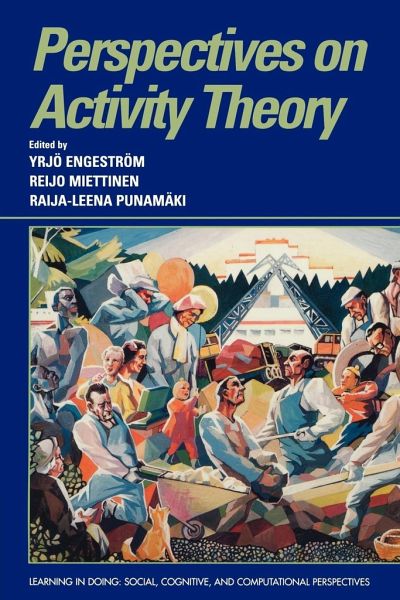
Perspectives on Activity Theory
Versandkostenfrei!
Versandfertig in 1-2 Wochen
75,99 €
inkl. MwSt.

PAYBACK Punkte
38 °P sammeln!
An international, interdisciplinary overview of research on activity theory.


Rechnungen
Bestellstatus
Retourenschein
Storno